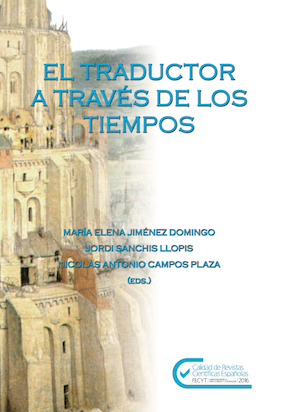Presentation
DOI:
https://doi.org/10.7203/qfilologia.21.9346 Abstract
Abstract
Each community has a system of signs that are the result of believing and feeling something unique. However, it is also true that linguistic systems also possess diverse strategies to adapt these ideas to varied expressive needs. What happens then when these ideas, facts or feelings are translated into other languages through an operation of semantic transfer? Should the translation of a text be considered as a complex act of cultural mediation whose anagnorisis must be to continue being a 'text'?
In order to answer these questions, the present volume of Quaderns de Filologia: Estudis Lingüístics gathers a series of research articles that deal with translation as a polyhedric study involving all fields of study contributing to the interdisciplinarity of translation. Such interdisciplinarity must be internal - i.e. based on the convergence of studies carried out by linguistics, literary criticism, psychology, semiotics, sociology, or language sciences - or external - i.e. those that deal with communication in the areas of documentation and terminology, as in journalism and library and documentation studies. Understanding the "other" is also building a bridge not only of cultural, technical and scientifi development, but also of tolerance; understanding difference is making steps towards personal and collective enrichment.
 Downloads
Downloads
Downloads
Published
How to Cite
-
Abstract389
-
PDF (Español)384
Issue
Section
License
 Este obra está bajo una licencia de Creative Commons Reconocimiento-NoComercial-SinObraDerivada 4.0 Internacional.
Este obra está bajo una licencia de Creative Commons Reconocimiento-NoComercial-SinObraDerivada 4.0 Internacional.
Authors who publish with this journal agree to the following terms:
- Authors retain copyright and grant the journal right of first publication with the work simultaneously licensed under a Creative Commons Attribution License that allows others to share the work with an acknowledgement of the work's authorship and initial publication in this journal.
- Authors are able to enter into separate, additional contractual arrangements for the non-exclusive distribution of the journal's published version of the work (e.g., post it to an institutional repository or publish it in a book), with an acknowledgement of its initial publication in this journal.
- Authors are permitted and encouraged to post their work online (e.g., in institutional repositories or on their website) prior to and during the submission process, as it can lead to productive exchanges, as well as earlier and greater citation of published work (See The Effect of Open Access).




